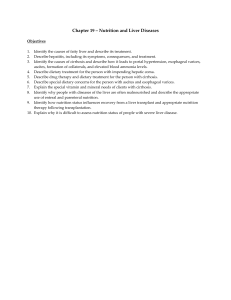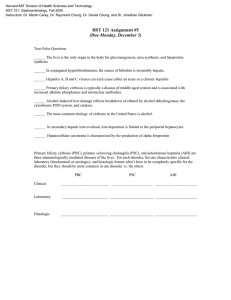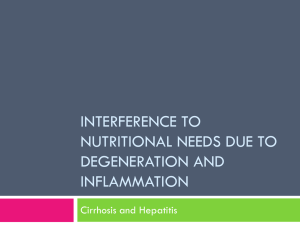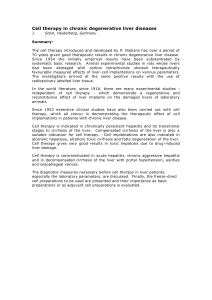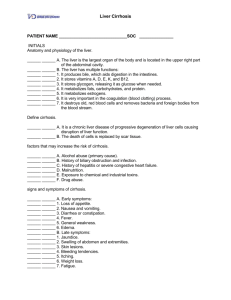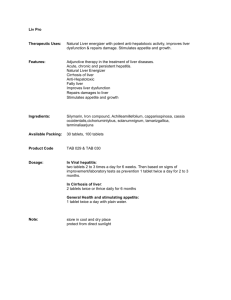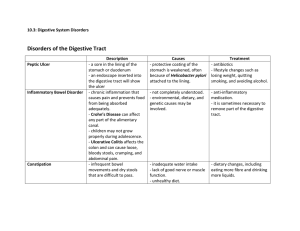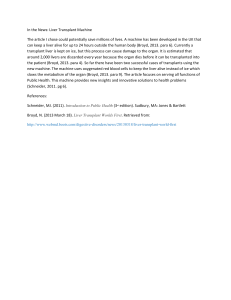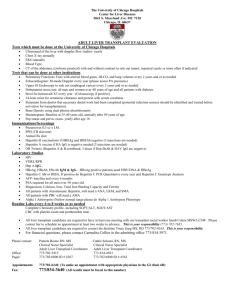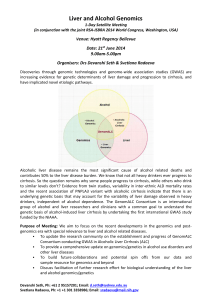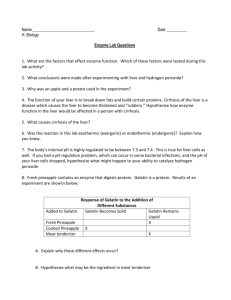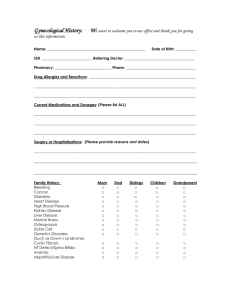Summary of Chapter 19 – Nutrition and Liver Disease
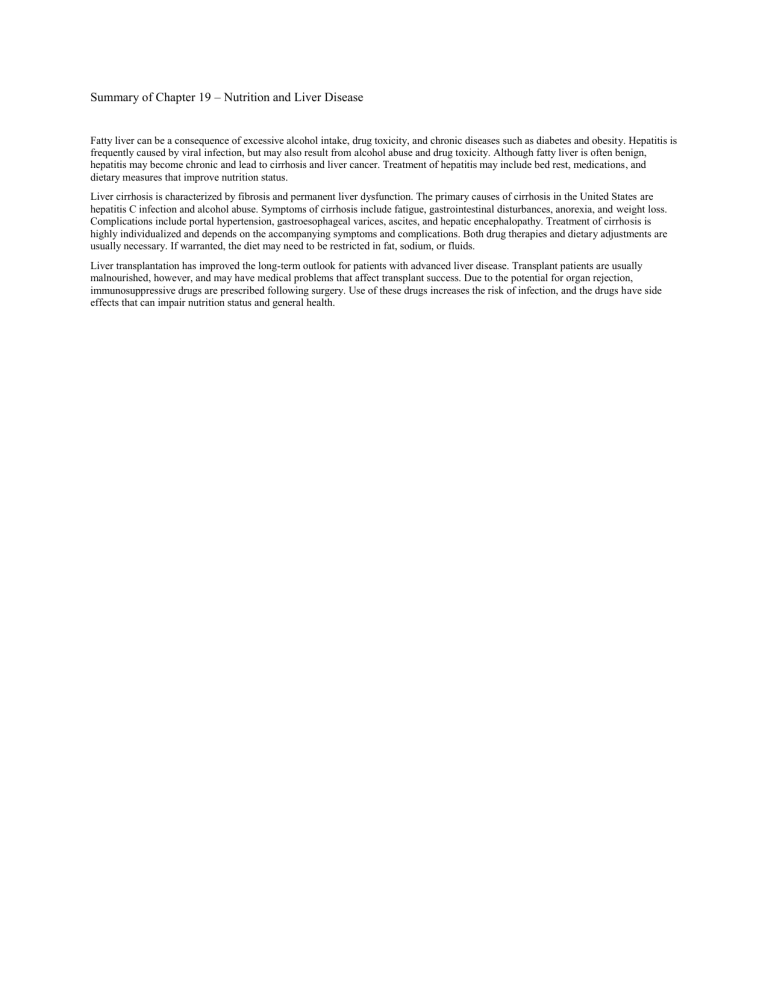
Summary of Chapter 19 – Nutrition and Liver Disease
Fatty liver can be a consequence of excessive alcohol intake, drug toxicity, and chronic diseases such as diabetes and obesity. Hepatitis is frequently caused by viral infection, but may also result from alcohol abuse and drug toxicity. Although fatty liver is often benign, hepatitis may become chronic and lead to cirrhosis and liver cancer. Treatment of hepatitis may include bed rest, medications, and dietary measures that improve nutrition status.
Liver cirrhosis is characterized by fibrosis and permanent liver dysfunction. The primary causes of cirrhosis in the United States are hepatitis C infection and alcohol abuse. Symptoms of cirrhosis include fatigue, gastrointestinal disturbances, anorexia, and weight loss.
Complications include portal hypertension, gastroesophageal varices, ascites, and hepatic encephalopathy. Treatment of cirrhosis is highly individualized and depends on the accompanying symptoms and complications. Both drug therapies and dietary adjustments are usually necessary. If warranted, the diet may need to be restricted in fat, sodium, or fluids.
Liver transplantation has improved the long-term outlook for patients with advanced liver disease. Transplant patients are usually malnourished, however, and may have medical problems that affect transplant success. Due to the potential for organ rejection, immunosuppressive drugs are prescribed following surgery. Use of these drugs increases the risk of infection, and the drugs have side effects that can impair nutrition status and general health.
